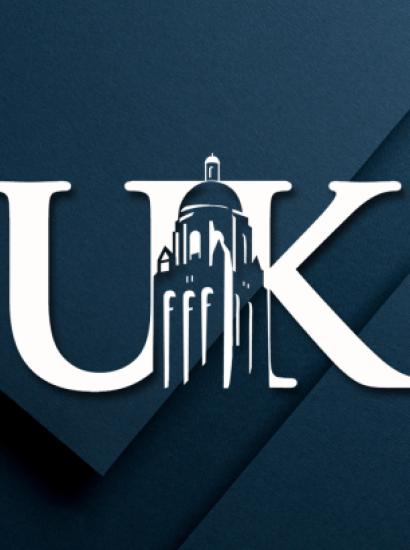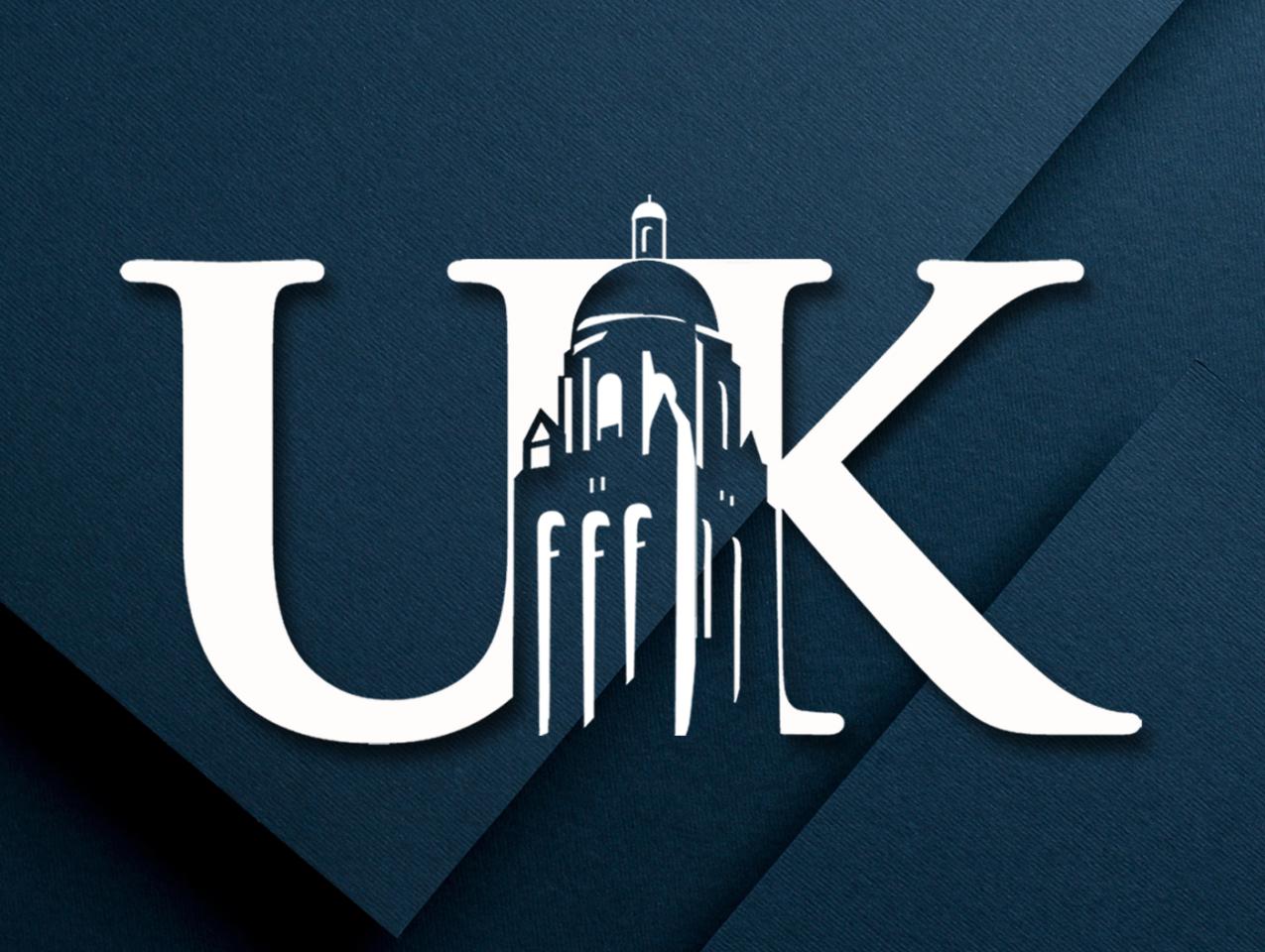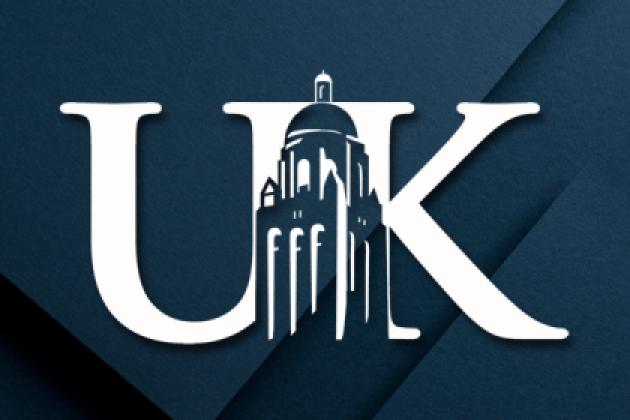- Economics
- US Labor Market
- Law & Policy
- Regulation & Property Rights
- Budget & Spending
- International Affairs
- US Foreign Policy
- History
- US
- World
- Civil Rights & Race
Recorded on June 22nd, 2018
At the Copenhagen Democracy Summit, Peter Robinson moderated a panel discussion featuring prominent politicians from some of the world’s leading democracies as they discussed why democracy is declining around the world and what the prospects for democracy are in the future. They discussed how we can build friendships that will support our ambition of bringing together an international alliance of democracies for a freer and more prosperous world.
Participants include José María Aznar, former Prime Minister of Spain; Felipe Calderón, former President of Mexico; Nick Clegg, former Deputy Prime Minister of the United Kingdom; Stephen Harper, former Prime Minister of Canada; and Toomas Hendrik Ilves, former President of Estonia and Hoover Institution fellow.
For many citizens around the world they do not feel that democracy is working, that there is too much corruption, too much nepotism, and too much bad behavior for democracy to survive. The 2008 crisis and the technology revolution created continued suffering, and citizens feel that democratic systems are not working and that the citizens are burdened with the consequences. The weaponizing of social media has further exacerbated the pain as bad actors can quickly mobilize and cause more confusion and problems.
So what can be done?
Countries need to work together and act super-nationally to give their citizens as well as citizens of other countries security, prosperity, and sustainability. Countries need to use technology to implement coordinated responses to quickly stop the misleading attacks that are causing disruption, disinformation, and decentralization.
Democracies need free and fair elections, an independent judicial system, an independent legislature, freedom of speech, property rights, and an immigration system that works for everyone especially the citizens of a country.
Populism and disagreements are expressions of democracy, and disagreements do not mean we should delegitimize and reject unconventional choices for leaders and label them undemocratic. When we do that, we are heading in the wrong direction. Instead we should ask: what are our citizens telling us and why are they unhappy? How can we offer citizens democracies with better solutions?
As a world, we need to provide security together, but strength comes from within. Countries need to address the shortcoming of how democracies are developed socially, economically, and politically in their own countries first. Democracies must be able to adapt and innovate and they must be allowed the freedom to thrive. The strength of democracies over time is resilience.
Countries also need to promote free trade while respecting borders, which are not incompatible especially when using the United States and Canada as examples.
If we go towards a Chinese style of government there will be no more Facebook or Twitter and fewer freedoms. One man ruling for life almost always ends up with stagnation, tyranny, or both.
Part of the problem democracies are having is that people do not remember what it is like to live in a country where you do not have democratic rights and freedoms. People really need to understand technology and history and to remember what communism and authoritarianism were like in order to avoid those forms of government in the future.
With all of the technologies, ideas, and access to information that we have today, we have greatest possibilities for human life ahead of us if we embrace free and fair elections, an independent judicial system, an independent legislature, property rights, and freedom of speech. If democracies do those things then the force of freedom will be unstoppable and democratic societies will thrive.
Did you like the show? You can rate, review, subscribe, and download the podcast on the following platforms:
Podbean | Apple Podcasts | Stitcher | RadioPublic | Overcast | Google Play | Google Podcasts | Spotify | RSS
Peter Robinson: Two former presidents, two former prime ministers, one former deputy prime minister. Although they come from different countries, they have this much in common. Each has devoted his life to the workings and ideals of a particular form of government. One that in recent years a number of powers, including Russia and China, have rejected. Today on Uncommon Knowledge, the prospects for democracy.
Peter Robinson: Welcome to Uncommon Knowledge, I'm Peter Robinson. Early this summer a number of political figures, journalists, and academics gathered in Denmark to address certain threats. Not threats to any particular nations but to a form of government. They called their gathering the Copenhagen Democracy Summit and our crew and I joined them. Filmed in Denmark, a special edition of Uncommon Knowledge.
Peter Robinson: Our panel this morning, Building An Alliance Of Democracies. As you just heard, I'm Peter Robinson of the Hoover Institution at Stanford. Our guests.
Peter Robinson: Tom Hendrik Ilves, elected as a member of the Social Democratic Party. Mr. Ilves served from 2001 to 2016 as the President of Estonia.
Peter Robinson: Nick Clegg. As a leader of the Liberal Democratic Party, Sir Nicholas served from 2010 to 2015 as the Deputy Prime Minister of the United Kingdom.
Peter Robinson: Stephen Harper. As leader of the Conservative Party, Mr. Harper served from 2006 to 2015 as the Prime Minister of Canada.
Peter Robinson: Felipe Calderon. As a member of the Partido Accion Nacional, Senor Calderon served from 2006 to 2012 as President of Mexico.
Peter Robinson: And Jose Maria Aznar, as leader of the Partido Popular. Sr. Aznar has served from 1996 to 2004 as the Prime Minister of Spain.
Peter Robinson: Tom Ilves, Stephen Harper, Felipe Calderon, Nick Clegg, Jose Maria Aznar. Please welcome them.
Peter Robinson: Gentlemen, 1989, the Cold War draws to a close, and the American political scientist, Francis Fukuyama, writes in what became a famous essay, "We are witnessing the universalization of Western liberal democracy as the final form of human government." 2018, today, Russia and China and other nations that seemed to be moving in the direction of democracy have now rejected democracy unambiguously. Anders Rasmussen, this morning, "Democracy is in decline in every region in the world." What went wrong? Sir Nick Clegg.
Nicholas Clegg: I don't think it's possible to exaggerate the effect of 2008. In fact I would go so far as to say that certainly in my own country, if the financial crisis in 2008 had not happened, I don't think the United Kingdom would've voted to leave the European Union and I don't think we'd have the political paralysis we now have in one of the western world's most long-established democracies. What went wrong? A lot of things went wrong. But I think it is of the many body blows that democracy has suffered, I think the fact that millions upon millions of our fellow citizens, in democracy after democracy after democracy, feel that the system has screwed up for no fault of their own, and that they are paying the consequences. They and their families are paying the consequences. I think that is of the various problems we're facing, in my view, remains the most profound one of all.
Peter Robinson: Stephen Harper.
Stephen Harper: I would agree with that. I think I would start by saying that Francis Fukuyama was obviously wrong at the time. There really was precious little example, or precious little evidence, of China moving towards a democracy in the 1980s or 1990s. And only peripheral evidence that Russia was moving in that direction. I think a lot of people got way ahead of themselves on that kind of a prediction. But I think essentially what Nick said is correct. Beyond that, ultimately, we love democracy because of the great ideals it encompasses and I do think democracy has a great record over a long period of time. But ultimately it is judged on its record, and for a lot of our citizens in the last 30 years in various countries, particularly those who had the global financial crisis, their outcomes have not been very good for a long period of time. When you don't have good outcomes, that ultimately tends to reflect in people's judgment on the system.
Peter Robinson: Spain. Despite a difficult transition, Spain embraced democracy. Yet according to the World Values Survey, between 1995 and 2014, there was a 17% increase in the proportion of Spaniards who favored, "A strong leader over an elected government." Prime Minister Aznar, what do you say to Spaniards who are tired of democracy?
Jose Aznar: I like to [inaudible 00:05:26] of some one time, another time, every ten years. But no, Spain is presently a very great, successful in the last 40 years. One is the intention of economic and social conversions. There is only two other countries in the world that are similar to Spain. That is South Korea and Japan. Second, Spain is a good expression of a very great success for the European Union. This convergence, this democracy in particular trends and assistance of the European Union means that two great success for Spain, total transformation of the country. This is true. We're living on the other [inaudible 00:06:17] other threats, but I hear my friends. But it is Greece and Russia, and China, Russia, the acts of September 11. And then the questions in 2008, and then the consequences of the [inaudible 00:06:43] technological revolution. This is my view.
Peter Robinson: President Calderon. A number of countries that share the Spanish inheritance, Cuba, Bolivia, Venezuela, Nicaragua, have now rejected democracy decisively for authoritarian rule. What would you say to Miguel Diaz-Canel of Cuba, or Nicolas Maduro of Venezuela to persuade them that they're making a terrible mistake?
Felipe Calderon: Well I have told a lot of things to them, actually.
Peter Robinson: What have you said to them? What have you said to them?
Felipe Calderon: Actually I was declared persona non grata in Venezuela and in Cuba as well, which is an honor for me.
Peter Robinson: Felicidades.
Felipe Calderon: But definitely it's been a very difficult time for Latin America. The point is, authoritarian regimes, to have an authoritarian regime is always a temptation for any man or woman of power. In Latin America prevails exactly the environment in which an authoritarian regime could prevail, unfortunately. These guys, dictatorships, are able to survive, even in such an open society in which we live, because we don't respect, the right persons don't care about that. In Latin America and these countries were abandoned in some moment of their lives.
Felipe Calderon: My impression with the first question is we believe in the 80s and 90s that democracy was the final point of something. We were like a static [crosstalk 00:08:21].
Peter Robinson: We were getting someplace.
Felipe Calderon: It's completely a mistake because it's not a static equilibrium. It's a dynamic system. A democracy needs to be feeded on daily basis about principles, outcomes for the people, and lot of things. We believe in Latin America or with the only exception of Cuba, Latin America was a democracy. Everywhere. But we've failed in that analysis. It's like the fairytales. The fairytales ends when the prince marry the princess and they were happy forever. That is not true. Nobody talks about the problems of the couple after they're married and the temptation of the prince and so on. So democracy's not a fairytale. We abandoned democracy. We say we got it and that's it. So we all were able to observe the changes in Venezuela for instance at the beginning of the century. Very few people need anything, probably me included. We believe that it's their own problem, and we are paying huge consequences in Venezuela and Bolivia and Cuba and Nicaragua. I don't know, Mexico probably very soon. So it's a call to actions now because we need to reinforce and come back to the struggle in favor of democracy everywhere.
Peter Robinson: Tom Ilves, let's pause for a question of definition. Vladimir Putin was reelected President of Russia with 70-some percent of the vote just a matter of months ago. Nobody would call Russia a healthy democracy. So if it isn't the mere mechanical means of casting ballots that defines democracy, what else are we talking about? Give us the necessary attributes for a democracy.
Toomas Ilves: Well before I give you the real ones, I'd say that given that John McCain, Nick Clegg and I have all been like President Calderon. But in the case of Russia, have been declared persona non grata in Russia. Maybe that's the definition. Winning a popular vote, if you don't have free and fair elections, is not much of an accomplishment. If you don't have contested elections, if you don't have an independent judiciary, and in fact, in the case of a country like Russia, or essentially all non-democratic countries, an independent legislature. If you don't have fundamental rights and freedoms, that you don't get put in jail for having the wrong opinion or posting the wrong opinion on Facebook or VKontakte, that the police in fact are in some way follow the rule of law. These are all characteristics of democracy that are fundamental. But if we simply look at well did you get a majority, not good enough. Especially when there's no opposing candidate or the result anyway gives you, I mean you know that they're counting the votes. As Stalin said, it doesn't matter who wins. What matters is who counts the votes.
Peter Robinson: All right. Again, the name of this panel is Building An Alliance Of Democracies. Nick Clegg, what can an alliance of democracies accomplish that the United Nations could not? What is distinctive about what we're attempting to do at this conference?
Nicholas Clegg: Well it's free of the bureaucracy and the institutionalization of the bodies like the UN. And also I think, certainly events like this liberate us all to be much more self-critical and candid than governments tend to be in those institutionalized settings. I do think without being hyperbolic about it, it's pretty clear to me, it's now such a cliched observation to make, that unless democracies generally rediscover the ability to reform themselves and revitalize themselves socially and economically and politically, then of course democracy will be increasingly discredited in the eyes of millions and millions of people who we ask to vote every few years. I think the great problem we have in one democracy after the next is stasis. It's paralysis. We're not learning the lessons of what happened in 2008. We're not dealing with the profound social injustices which were supposed to be solved by liberal democracy. And our political institutions, certainly in the democracies on either side of the Atlantic that I'm familiar with, just don't change. We have too much corruption in places. We have too much nepotism. We have democratic systems which are not electorally answerable to the people.
Nicholas Clegg: It's an ultimately reform or die is a pretty good lesson I think for democracies to abide by. That's the kind of thing you can discuss in a setting like this, which of course you'd never, ever have in a meeting of the United Nations.
Peter Robinson: Right. We can say things in the family, so to speak, that you couldn't say outside. Tom Ilves, you're well-known for making Estonia, bringing Estonia into the digital age in a remarkable way while you were President. How does the digital environment shape your thinking about what democracy can and ought to do together?
Toomas Ilves: Well I'm actually quite concerned that the digital era has ushered in a period of extreme vulnerability for true democracies. Because we can be attacked. We've seen this over the past several years. Everything from hacking into candidates' servers, doxxing or publishing what's in there, which is not simply a matter of Hillary Clinton. But we saw last year with Emmanuel Macron, with the targeted advertising, highly granular, target advertising. I'd say that since basically 2006, with the rise of Facebook or social media and the ubiquity of the mobile phone, we now have such a different media landscape that people can get into bubbles. They can be cut off from each other but find thousands of people who have the same strange ideas, and all of these together mean that I think we're highly vulnerable.
Peter Robinson: And the attacks are asymmetrical. We can't mess up their democracies because of course they don't have democracies to mess up [crosstalk 00:14:50].
Toomas Ilves: This is my point. You cannot do to them what they do to you. What are you going to do? Are you going to change the result in the Russian elections? Seriously? But, what is I think even more crucial for us to understand is that there are a limited number of actors. To rattle them off, APT28, 29, that's Fancy Bear, Cozy Bear, hacking groups. Then you have the troll farm in Petersburg. The interesting thing, and the very dangerous thing, is they're active in virtually all trans-Atlantic democracies and apparently now also in Mexico. It's not just the United States that got hit. It was Macron, I mentioned the German Parliament, the Italian Foreign Ministry, you can go on and on and on about how democratic institutions have been attacked by a limited number of actors.
Toomas Ilves: And our problem is that in each case, the response has been national. The US deals with these actors, Britain deals with the hackers. In Spain you had much of the Madrid, Catalonia propaganda was actually done by Russia with Venezuela. Each country does it itself. Where we need, I think, bring democracies closer together, is that a response to these kinds of asymmetric attacks require coordinated actions on the part of countries that are democracies, because those are the countries that are vulnerable.
Peter Robinson: The question of Europe and the correct unit or basis for democracy. As Prime Minister in Spain, and as Deputy Minister in Britain, you, Jose Maria Aznar, and you, Nick Clegg, both championed the European Project. Clegg, you wrote a book entitled, How To Stop Brexit. Not quite enough sales apparently, but you wrote the book. Listen to the journalist John O'Sullivan, who served as a speechwriter and advisor to Prime Minister Margaret Thatcher.
Peter Robinson: "The European Union presents itself as the fulfillment of democracy, a deeper and truer democracy than the discredited partisan bickering of political parties. Yet it subverts democratic accountability, and it seeks to transfer ever-increasing powers from democratic institutions to bodies that reflect elite opinions and priorities."
Peter Robinson: We don't have time to argue the European Union or Brexit, but what I'm concerned with here is, how do we think through when there seems to be a debate reopening perhaps across Europe itself about the correct unit or basis for democracy? How do we think that through? Nick?
Nicholas Clegg: Well very quickly, there's no one-size-fits-all. If you're the United States or Australia, this vast landmass on the other side of the planet, of course your worldview's different. Europe is a cluttered, crowded, patchwork quilt of different countries with different languages and traditions. It's a continent which is being submerged in its own blood on so many occasions over the last 100 years. We're right adjacent to some of the poorest countries in the world. In Africa, some of the greatest eruptions of violence, in the Middle East and elsewhere. It is quite normal and right that that continent, where we are located with our history, tries to do stuff together because we've worked out the hard way as a continent that if you do stuff together, you generally get more done than pulling off in different directions.
Nicholas Clegg: It's not perfect. The way that Brussels works is not perfect. Heaven knows, I spent five years in the European Commission and the European Parliament. Like all institutionalized forms of governance, it has its flaws. But it is a remarkable and in my view, remains, a remarkable effort at trying to act supra-nationally in a continent which in my judgment has to do so if it wants to give its citizens security, prosperity, and sustainability.
Peter Robinson: Prime Minister Aznar.
Jose Aznar: I don't believe in the United States and Europe. I don't believe in this. I think that Europe is expression of the traditional nationalist state in Europe. Is expression of history of the UK, of Germany, of Spain, of France, of Italy, or other countries. I don't believe in this idea. I think this is impossible to eliminate the traditional nationalist states in Europe and trying to organize a multinational institution. A new institution, a federal institution, that eliminate totally the nationalist states. Second, I think we live on this various straits in Europe today. Not only the question relating with the Brexit. Traditional threats relating with other countries. The technological revolution produce the three "Ds," disruption, disinformation, and decentralization. Never in the world. When I left office in 2004, there was non exist Apple, non exist Netflix, non exist Alibaba, non exist Amazon, almost non exist internet. Well it's totally different today. And the consequences in politics, in introduction of a system of democracies, so far, of the technological revolution, have been devastate.
Jose Aznar: Third question. The most important, immediately threat for Europe, more than the consequences to the Brexit is the evolution of the consequences of migrations policies. You're looking in Africa, living today, one point billion people. In 2015, we live 2.4 billion people. It is impossible that Europeans' leaders don't reflect seriously about the consequences of the future of this for Europe. And the future exists in Europe of the same existent of Europe. We live in an existential question in the moment in Europe today.
Peter Robinson: Spain is separated from North Africa by 14 kilometers at the nearest point [crosstalk 00:21:12].
Jose Aznar: Exactly 12.
Peter Robinson: 12?
Jose Aznar: 12.
Peter Robinson: You were the Prime Minister.
Jose Aznar: 12. But we have the advantage, as we receive a lot of people from Latin America.
Peter Robinson: From Europe to North America. Mexico and Canada are both signatories of the North American Free Trade Agreement, an agreement that at the insistence of the United States, is now being renegotiated. Then candidate Donald Trump, speaking in 2016, "We have become," we the United States, "have become more dependent on foreign countries than ever before. It's time to declare our economic independence once again." Democracies are committed to freedom and the expansion of trade represents one of the great accomplishments of the last seven decades since the Second World War. How can democracies promote freedom, including free movement of capital, and indeed, of labor, while still respecting national identity, including the integrity of borders? Prime Minister Harper.
Stephen Harper: Well look. I guess I don't really think that's a huge challenge.
Peter Robinson: That's an easy one?
Stephen Harper: I was going to say in Canada, we've had deep, not just free trade agreement that frankly predates NAFTA. We've had deep economic integration with the United States for decades, and we feel we've maintained our national identity and our sovereign status. I don't think these things are incompatible. Peter, if I can maybe just make a general comment about the tenor of the discussion that maybe I differ a little bit with. I think we need to distinguish the difference between a genuine move away from democracy to anti-democratic systems. As we've seen certainly in Russia and of course China has never even made the pretense of being a democracy. Versus democratic outcomes that may be unconventional. The fact that there may be euro-skeptics or populists or nationalists or separatists elected is not, in my judgment, some kind of threat to democracy. In fact, it's an expression of a democratic system.
Stephen Harper: I think the worst thing that we who represent essentially the establishment of the center-right and center-left could do is start dismissing that as equivalent to Russia and China. This is the population telling us they are unhappy. What we've got to figure out is why that's the case, and offer them better solution for the things that are making them unhappy. If we just tried to delegitimize all unconventional choices as anti-democratic, then I think we are going down equally dangerous ground.
Peter Robinson: Populism is not anathema. Populism is an expression of democracy itself. Fair?
Toomas Ilves: But it becomes a problem when you begin to dismantle the fundamental institutions of democracy. I agree completely.
Peter Robinson: I agree with that. I agree with that.
Toomas Ilves: But it's when they're going after the free press, you're going after the independent judiciary, then you are getting into shaky ground.
Peter Robinson: President Calderon.
Felipe Calderon: But going back to your questions about the problem is, I agree with you, the free trade's a great achievement of this civilization. The problem is when such a big leader just don't understand the benefits of trade. I don't know. It's a question of family educations. I don't know is happening with this guy. But it's completely true that trade provides benefit for all. For producers, consumers. It makes more productive any economic system or competitive. The North America, by the way, including Canada, Mexico, and the United States, has been more competitive due NAFTA than ever, I believe. The way it is, how we can fix, how can we arrange such a complementary agreement?
Felipe Calderon: For instance, the United States export towards Mexico implies direct job for 1.1 million people. 1.1 million families depend directly exporting to Mexico. If you consider the trade with Mexico, 6 million people are depending on that. These guy, the President of the United States, could cancel the benefit for a million families in the United States, workers. Or take just one example. Farmers in the center part of the United States. The best customer for those farmers are we, the Mexicans. We are buying almost 20 tons a year of corn and wheat and so on. We can buy that to Brazilian guys or France and Argentina, wherever. If he canceled the trade, and the people who would suffer the most are those people hard-supporting of Donald Trump. He doesn't understand the point. Or maybe he understands, I don't know what's your opinion. He tried to ignore this root of reality only to gain votes, only to catch this reaction.
Felipe Calderon: I agree with you, Nick, that the problem is after the economic crisis in the United States, we can find a lot of angry people about the outcome of the crisis. Blaming someone else, and in particular, choosing some foreign causes. So we, the Mexicans, are in this case the scapegoat of the problem. We didn't create it. We didn't create the economic crisis in the United States. We didn't create the mess of the economic consequences of 2008, 2009. Actually we suffered that. But we are paying the political cost of that, and that is completely unfair. But we will survive the [crosstalk 00:26:53].
Peter Robinson: You've nicely [crosstalk 00:26:54].
Felipe Calderon: We defeated Germany. We can survive Donald Trump.
Peter Robinson: Which leads Mexico to-
Male: You defeated Germany?
Felipe Calderon: Yes indeed.
Peter Robinson: The role-
Felipe Calderon: Wait, I had a dream that Mexico defeated Germany. [crosstalk 00:27:05].
Peter Robinson: The role of the United States, two quotations. Here's quotation number one, our host today, Anders Fogh Rasmussen, "The world needs a policeman." The world needs a policeman. "The only capable, reliable, and desirable candidate for that position is the United States. America is destined to lead." Again, our host, Andrews Fogh Rasmussen. Quotation two, the late American political scientists, Irving Kristol, writing as long ago as 1983, he spotted it then. "If we've learned anything from the experience of the last 30 years," that is the post-war years, "it is that dependency corrupts. To the degree that Europe has been dependent upon the United States, European political vitality has diminished."
Peter Robinson: Once again the name of this panel is Building An Alliance Of Democracies. Must the United States remain dominant? Would you like to see less of the United States? This is subjective, I know, but how do we grapple with that problem? Prime Minister.
Jose Aznar: This is for me is very clear. I am a total Atlanticist convince and I defend this alliance between Europe and the United States with Canada and other countries. In 2008 I propose a transformation of NATO. In an alliance for freedom, that we manage to establish very close relation with Japan, with Australia, with Israel, with Colombia, with another countries. With this expression of a new alliance of democracies. The United States continued to be an indispensable power. The only alternative to the United States today is the soldier in the world, or China in the end of [inaudible 00:28:57]. For me is not an alternative. I defend the idea of the Atlantic values, base the democracy in liberty and tolerance and progress and the rule of law and free trade and so on is the best expression that we must defend for the current world and for the world in the future.
Peter Robinson: Tom Ilves.
Toomas Ilves: Well as long as Europe can't seem to get its act together on providing security, it will, by the default country will be the United States. But I agree with Prime Minister Aznar that really one is not enough. We really do need to do this together, and also look beyond the trans-Atlantic region. Because I think that democracies, such as Japan, Australia, they're going to be - they are already under threat just as we are within the past several years, in this area when distance no longer means anything in the digital era.
Peter Robinson: Nick, isn't part of the idea of Europe to serve as a counterweight to the United States? Is that the way you conceive of it or no?
Nicholas Clegg: No. I don't. I'm a fervent believer that Europe getting its act together collectively is a good thing for us, but I don't regard it as a project which is done against America. Far from it. The United States strategically, until Donald Trump arrived, has always, in the post-war period, believed that its own interests are best served by a cohesive Europe. That's one of the reasons Britain, until summer 2016, played this pivotal role, was able to play this role as a bridge between the European continent and the United States. I think it was essential that we do so.
Nicholas Clegg: But look, it's slightly repeating what I said earlier. Strength, much as for us individuals, it's also for nations. It comes from within. As long as we are as battered and enfeebled internally as I think we are in the developed democratic world at the moment, the way in which external powers project it is always going to be uncertain and erratic. I strongly believe that we need to look ourselves hard in the mirror. Until we deal with some of the really profound shortcomings and the way in which developed democracies are now functioning socially, economically, and politically, we're never really going to find our feet in the world as China and the East rises in power and in authority.
Peter Robinson: From the National Defense Strategy, a document published earlier this year by the America Secretary of Defense, James Mattis, "It is increasingly clear that China and Russia want to shape a world consistent with their authoritarian model." Less than a generation after the end of one cold war, we find ourselves in a new existential struggle against Russia, the largest landmass on earth, and China, the largest population on earth. Does that strike you as an accurate assessment, or Americans being melodramatic? President Calderon.
Felipe Calderon: Well what a question, well. I think it's, the algorithm is true in part. It's true in part. Definitely China and Russia are trying to build their own leadership, in particular a lot of them by different regions probably. But the question is how to deal with these emerging powers, big emerging powers. There is an expression coined at the Kennedy School, of Graham Allison saying, "We need to avoid Thucydides's Trap," Thucydides's Trap. He refers the fact that Greek was threat by the emerging power of Cartagena (Carthage) and they decided to go on war against Cartagena. The point is that the Greeks won, but it was the beginning of the end of Greek.
Felipe Calderon: They analyze the moment in history in which a superpower, let's say the United States, perceives a threat coming from an emerging new power. They get in a trap, they will go against and could provoke a very damaging and destroying war. We need to avoid it, Thucydides's Trap, in this case. We need to find a way in which we can deal with this emerging superpower of China. China will be the largest consumer, the largest producer, the largest population. Probably will be the largest economy by the year 2050. And maybe the largest army. The way to deal with that is not about provoking a conflict or trying to avoid that part. It requires a lot of intelligence and democracy to deal with this new event.
Felipe Calderon: But the fact is China is trying to get a leadership in several fields. We need to analyze what kind of leadership is acceptable, what kind of leadership is smart or not. My final comment of this is one example. The globalist strategy of China in order to capture that such leadership is One Belt, One Road strategy. The strategy of the President of the United States is to build a wall. That's the globalist strategy, to preserve the leadership. China tried the wall strategy several centuries ago, and they built a big wall, there's a fancy one, but it's completely useless in this time. The new strategy for them is to build huge infrastructure all the way from Beijing to Europe through Turkey. To rebuild the Silk Road and to build huge infrastructure in the sea, including Africa and Asia.
Felipe Calderon: Is that a right strategy? I believe it's a right one. We cannot reject to do that. We need to think in a smarter way to find what could be new equilibrium in the world for next century.
Peter Robinson: Prime Minister Harper.
Jose Aznar: In this moment, China have not a capacity to challenge US.
Peter Robinson: Has not?
Jose Aznar: Has not.
Peter Robinson: Yet.
Jose Aznar: I think Russia, another. The question in the future will be between US and China. Russia will be a secondary actor with an enormous capacity to create problems, especially in Europe. But China today, gaining in economic influence, gaining nationalism, gaining self-reinforcement, that have not still the capacity to make certain challenges to the US.
Male: You're right, you're right.
Peter Robinson: Stephen Harper.
Felipe Calderon: Just one, I'm afraid that if the strategy is to rebuild the Cold War Age would be a better strategy is my point.
Jose Aznar: The question is the studies, the American studies, Thucydides's Trap. That this is a war of Peloponnesus between Athens and Sparta. It was inevitable, or was evitable? The war of Peloponnesus was inevitable for the expansion of Athens and for the fear in Athens. Isn't guarantee that it is non exist between China and the US, but we must pay a lot of attention to avoid this possible confrontation.
Peter Robinson: Stephen Harper, President Calderon, and Prime Minister Aznar both said several times in a row now, we must do this, we must do this, we must do this. If we were to reconvene here in Copenhagen five years from now, what structures would you hope to have emerged by then? Again, the name of this panel is Building An Alliance. We have NATO, we have the United Nations. How can democracies engage in joint ... How can we act as we?
Stephen Harper: I put the United Nations and NATO in very separate categories. The United Nations is, as my father used to say, it's a form of everybody. The good, the bad, and the ugly. The United Nations is not committed to democracy because large percentages of his members are not committed to democracy. It's not going to be the body that's going to build an alliance of democracies. I think as Prime Minister Aznar said, and proposed at one time, it is conceivable that NATO could be ... NATO is a security organization, but given its membership, it could conceivably be that kind of a structure. Now that would mean tackling some tough issues like what Erdogan's Turkey is doing as a vital member. There'd be some real challenges there.
Stephen Harper: Look, I think five years from now, here's the question that I think confronts us all. We talk about, I've always been a big believer in American leadership, particularly from the Canadian standpoint. American leadership in the world in terms of promotion of our economic interest, trade, markets, democracy, freedom, for Canada this is vital, almost existential that the United States play this kind of role in the world, and I'd like to see that.
Stephen Harper: On the other hand, my observation as Prime Minister of Canada is there's been lots of examples of American leadership without much in the way of non-American followership. Americans have been told now for at least a generation a couple of things that are frankly at their heart incompatible. One is that America has unique leadership responsibilities and the other is that this is a multi-lateral world where America can't really lead. So which is it? I think the truth is the latter is more true, it is increasingly a more multi-lateral world, and that if we want, and I talk about Canadians and Europeans and others, if we who share, broadly-speaking, the market-oriented, democratic values of western nations. If we want to see American leadership, we have to do more. We have to be better at partnership and followership if we want that American leadership. Otherwise I think that the Trump approach is a signal of the future. If America can't really lead, America's going to worry about itself. It's up to the rest of us, I think, to demonstrate that we really can be good and useful partners.
Peter Robinson: Last question. The late leader of Singapore, Lee Kuan Yew, speaking in 1993, "I do not believe that democracy necessarily leads to development. I believe that what a country needs to develop is discipline more than democracy." All right. In the last 30 years, we have China enabling half a billion people to escape poverty, experiencing a growth rate a multiple of the growth rates that our countries have experienced. And now China is building a vast interconnected system of ports and highways, the Silk Road Initiative that you mentioned earlier, while investing in mines in Africa and Latin America and technology in the United States.
Peter Robinson: I come from Silicon Valley, there's Chinese money buying up initiatives. I'd like to just go down the row to each of you. What does each of you say to a young person in your own country, somebody in his 20s, who's looking to the next half century and wants to know that he or she is not on the losing side? Nick Clegg, relatively slow growth in Britain, a current impasse over Brexit. Persuade a young Englishman or Englishwoman that democracy is still worth it.
Nicholas Clegg: Well with difficulty at the moment particularly the young person in Britain because as you know, the country is paralyzed politically by this Brexit question. Yet over 70% of youngsters voted for a different future to the one which is now being imposed upon them. What's happening in Britain now is an unprecedented experiment. There is no other democracy anywhere in the modern era that invites its population to vote on a future, decides by a wafer-thin majority to go in a completely different direction to where it's been for 40 years, against the explicit and stated wishes of those who have to inhabit that future, the young.
Nicholas Clegg: We didn't touch on it here. One of the things that's emerging amongst many other fault lines in democracy is this terrible cleavage now between the generations. You see this over and over again in developed democracies that whether it's pensions, whether it's housing, whether it's welfare, the older generations are hoarding common assets at the cost of the younger generation. I think that's imposing real, really strains on the legitimacy of democracy amongst younger voters.
Nicholas Clegg: What we have to show them is that democracy, which is what is so different to democracy amongst other things, authoritarian, rigid, and disciplinarian regimes, is the ability to adapt. To listen to its people, to adapt and innovate. That's always been a great gift of democracy, is that we're more supple than Lee Kuan Yew's worldview. But the problem is at the moment, we're not showing that suppleness or that adaptability. Instead, we're showing paralysis. The stakes are high. I think it's tough to make that case, but boy do we have to continue to do so.
Peter Robinson: President Calderon. Unsettled political time in Mexico. I know you don't want to comment on the election, but you have an election in July. There is some tension in Mexico. What do you say to a young Mexican to persuade him or her that democracy is the way to go?
Felipe Calderon: Well it's quite difficult question again, but-
Peter Robinson: This is a harder question than I was expecting it to be.
Felipe Calderon: I would say to a young people trying to explain briefly what is happening in China would say, "Well if you choose a regime like in China, you will have not Twitter and you have not Facebook." And that's it. It's a very powerful [crosstalk 00:43:03].
Peter Robinson: [crosstalk 00:43:03].
Felipe Calderon: It's a very powerful argument for them, I believe. We need to fit democratic values all the time. We need to talk about the value itself, of freedom. Democracy is the only one regime in which freedom is the way to live. It's a guarantee. Freedom to choose, freedom to vote, freedom to speak. Those young generations, they are taking that for granted. They never imagine a way, a world in which you have canceled your own liberties. It's quite difficult but we need to explain it. But the short answer is, I will explain. In that regime, there is no Facebook and there is no Twitter and you will have a very restricted mobile phone and that's-
Peter Robinson: Finito.
Felipe Calderon: It's a difficult time for Mexico [crosstalk 00:43:51].
Peter Robinson: Prime Minister Harper.
Stephen Harper: I guess I would say much the same thing. The strength of democracy over time is its resilience. We can make mistakes, but we can also correct mistakes. Governments can diverge from the interests of us as individuals or of the collective interest, but we have mechanisms to pull it back. In an authoritarian state, where things go off the rails, they really go off the rails. We can talk about the last quarter century of China as something that appears to have been on the rails. But you can talk about the quarter century of Chairman Mao as how badly off the rails a country can go, which frankly is unthinkable in a democratic system, anything that bad.
Stephen Harper: I think the Chinese, the Chinese situation to me is really interesting because I think that under Deng, they developed an interesting model, admittedly for an emerging economy. One where there was collective leadership, some limits on individual power, kind of a dictatorship without a dictator. Now they've gone back in a sense to the old system which is one man rule for life. I will just observe, it's not an iron rule of history, but one man ruling for life almost always ends in stagnation, tyranny, or both. It'd be very interesting to see where China is 30 years from now.
Peter Robinson: Prime Minister Aznar.
Jose Aznar: Well I trying to practice with my godchildren everyday. Explain them what is democracy. I have to explain they why it's possible to establish that democracy is not the opposite, to have discipline. But they're trying to understand history. Once someone ask Winston Churchill, "How'd we won the war?" He said, "Talking, talking, and talking." It is true because he convert the world, in the words in a world too. But explain, talking about the people, especially the lesson of the history for the young people especially, is extremely important. In these times of changes, reinforce our classical values in their liberal democracies, is the best example, the best explanation for the young generation in my opinion.
Peter Robinson: Tom Ilves. Last word for you. Estonia is a country of fewer than two million people bordering on a resurgent authoritarian Russia after having been held by Russia for decades. And also now witnessing the rise of an authoritarian China. What do you say to some kid in Estonia who's saying, "Between Russia and China," what do you say to a kid to say, "No, democracy is worth it"?
Toomas Ilves: Well first thing, I tell them to study math.
Peter Robinson: Study math?
Toomas Ilves: Math.
Peter Robinson: All right Tom, explain that one.
Toomas Ilves: Well it's just that if you want to keep up with the world, you're going to need to understand what is happening technologically and certainly that's something that i just encourage. I've encouraged them to do for 25 years. Well, it's very hard for me to say it because we're actually getting to a point where we now have a generation that does not remember what it was like. Whereas up to now, we've been doing rather well because everyone remembered what the bad old days were like. Now we have coming into full bloom, people 28, 29, 30, who do not know what it means to live in a country where you do not have democratic rights and freedoms.
Toomas Ilves: I think this is part of the problem in much of Europe, is that many countries have forgotten, and many people have forgotten that. That same selfish demographic bulge that Nick was talking about known as the baby boomers, at least they had some idea of, "Well, we know what the old communist regime was like." Even older people remember what authoritarianism in the heart of Europe meant. I agree. I think you really need to know your history and face that history, realizing how bad it can get. Because no one believed in 1913 how bad it can get, because that was also an era of free trade, blossoming democracy.
Peter Robinson: Are you optimistic? Are you optimistic for the prospect for democracy?
Toomas Ilves: I am always optimistic.
Peter Robinson: Stephen?
Stephen Harper: Yes. Notwithstanding all our problems, we should have with the technological advancement, the greatest possibilities of human life ahead of us.
Peter Robinson: Felipe?
Felipe Calderon: No. [crosstalk 00:48:40].
Peter Robinson: You know you have a chance. You have a chance to end this on a high note.
Felipe Calderon: I don't like to be optimistic in political things, because if you are optimistic, you could be very disappointed. You don't want to be disappointed, don't be optimistic. Be realistic. The realistic thing is it is possible to build the force for the good, of the force. We can build that. I'm not optimistic because it depends on us, but is not easy. Most of the people that just limit the things because they are too much optimistic. They lose the chance. I don't want to lose it.
Peter Robinson: Nick, despite your intense frustration about the scene at home, do you remain fundamentally optimistic?
Nicholas Clegg: I'm very optimistic about what we just talked about, the next generation. But I worry terribly that what we're handing to them is some very, very degraded and battered and bruised democratic institutions. I think we've handed a big, big job to our kids and our grandkids to fix a lot of problems that we created for them.
Jose Aznar: I am a believer in the force of freedom. And I believe that the force of freedom is, and continue to be unstoppable.
Peter Robinson: Toomas Ilves, Stephen Harper, Felipe Calderon, Nick Clegg, Jose Maria Aznar, I am Peter Robinson. Please join me in thanking our panelists.
















